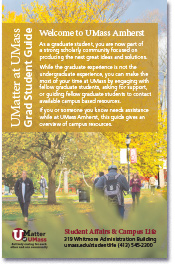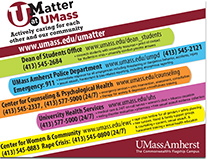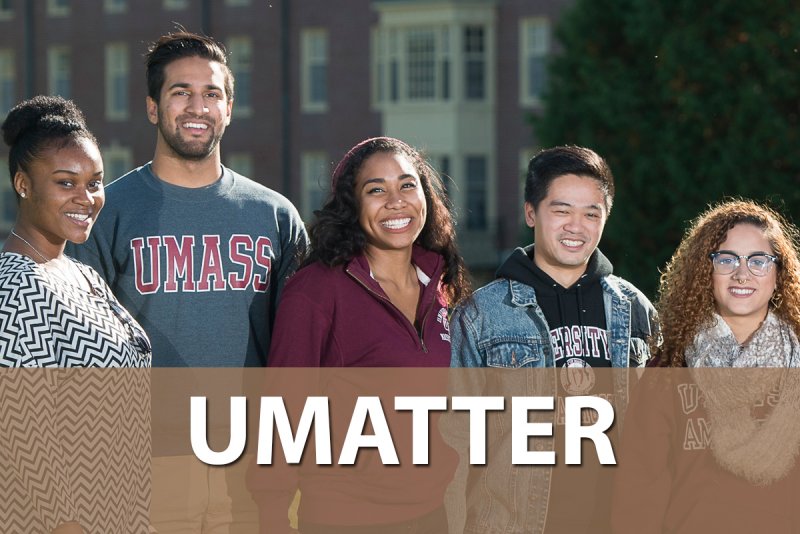
Maroon Folder
Update: Fall, 2022 (orig. 2013)
Description: a resource guide for recognizing and assisting students in distress.

Crisis Resources Flyer
Date: Fall, 2022 (orig. 2021)
Description: Essential contacts for mental health emergencies.

Be Present Poster
PowerPoint slide
Date: Fall, 2021
Description: A reminder that our actions and decisions matter.

Creating a Culture of Care
Date: Fall, 2021 (orig. 2020)
Description: a guide to supporting student wellbeing and mental health.

Minutes Matter Poster
Update: Fall, 2019 (orig. 2014)
Description: An 11x17" poster reminding students to call for help in an alcohol or other drug related medical emergency.

Recognize and Respond to Distress
Date: Fall, 2018
Description: an in-depth guide to helping a person experiencing emotional distress

New Students Guide
Update: Fall, 2021 (orig. 2015)
Description: An overview of campus resources and general support services for incoming UMass Amherst undergraduate students

Grad Student Guide
Update: Fall, 2021 (orig. 2016)
Description: An overview of campus resources and general support services for incoming UMass Amherst graduate students

Mount Ida Campus of UMass Amherst New Students Guide
Date: Fall, 2021 (orig. 2019)
Description: An overview of campus resources and general support services for UMass students on the Mount Ida Campus

UMatter Campus Resource Flyer
Date: Fall, 2015
Description: An 8.5x11" printable flyer of key UMass campus resources

UMass Community Postcard
Date: Fall, 2015
Description: A reminder about UMatter values and resources, for returning UMass students

"What is an Active Bystander?" Poster
Date: Fall, 2013
Description: an oversize color poster outlining the basics of Bystander Intervention. (PDF, 38x27")



